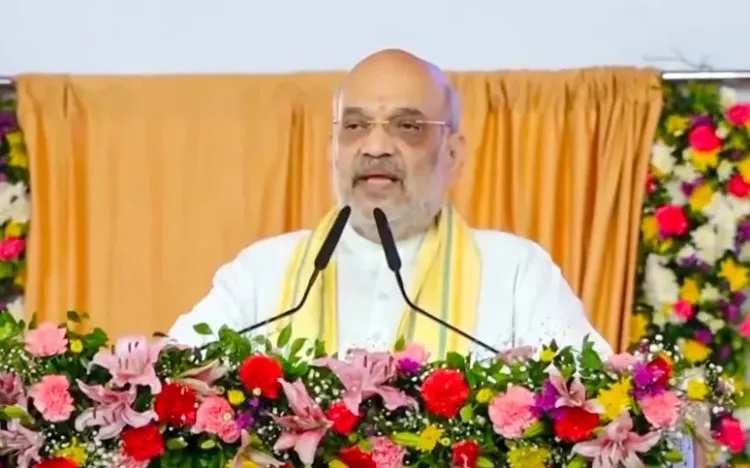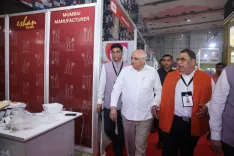What is the significance of the foundation stone of India’s first National Cooperative University in Gujarat?

Synopsis
Key Takeaways
- Tribhuvan Sahkari University marks India's first National Cooperative University.
- Initiative reflects PM Modi's commitment to cooperative empowerment.
- Honors the legacy of Tribhuvandas K. Patel, a pioneer in the cooperative sector.
- Intends to recruit individuals trained in cooperative systems.
- Over 30 crore people are part of the cooperative movement in India.
New Delhi, July 5 (NationPress) At the ceremony marking the laying of the foundation stone for India’s inaugural National Cooperative University -- Tribhuvan Sahkari University -- in Anand, Gujarat, Union Home and Cooperation Minister Amit Shah underscored that this initiative reflects Prime Minister Narendra Modi’s unwavering dedication to empowering and promoting the cooperative movement throughout the nation.
Among the attendees at the foundation-laying event were Gujarat Chief Minister Bhupendrabhai Patel, Assembly Speaker Shankar Chaudhary, Union Ministers of State for Cooperation Krishan Pal Gurjar and Muralidhar Mohol, along with Gujarat’s Education and Cooperation Ministers Rishikesh Patel and Jagdish Vishwakarma.
In a pointed critique of the opposition, Shah remarked, “The Congress party wasn’t even aware that Tribhuvandas K. Patel was originally a member of their party, not the BJP. At that time, our party had not yet been formed.”
Paying homage to the iconic leader of the cooperative movement, Shah stated, “The name Tribhuvan Sahkari University is not inspired by any religious figure or ideology, but instead honors Tribhuvandas K. Patel -- the visionary whose immense contributions laid the groundwork for India's cooperative movement, particularly in the dairy sector. There could be no more appropriate name for this university than his.”
Shah emphasized Patel’s groundbreaking work, saying, “In 1946, he planted the seeds of farmer empowerment through the establishment of the Kheda Milk Union. That seed has blossomed into a robust entity, benefitting countless farmers and women. The AMUL brand, which now leads the dairy industry, is a proud testament to that vision. Today, our cooperative dairy proudly stands among international leaders.”
Referring to the government’s expansive vision, Shah noted, “When PM Modi aimed to enhance the economic conditions of millions of impoverished and rural individuals, he initiated a dedicated Ministry of Cooperation. Since then, the cooperative movement has gained significant momentum, with over 80 lakh ward members joining, and 30 crore people now part of this initiative. This means one in every four citizens is connected to it.”
He added, “Previously, we used to recruit individuals and provide training. Now, only those educated in cooperative systems at this university will be hired. This will boost efficiency and guarantee complete transparency.”
The Tribhuvan Sahkari University represents India’s renewed commitment to cooperative development.







